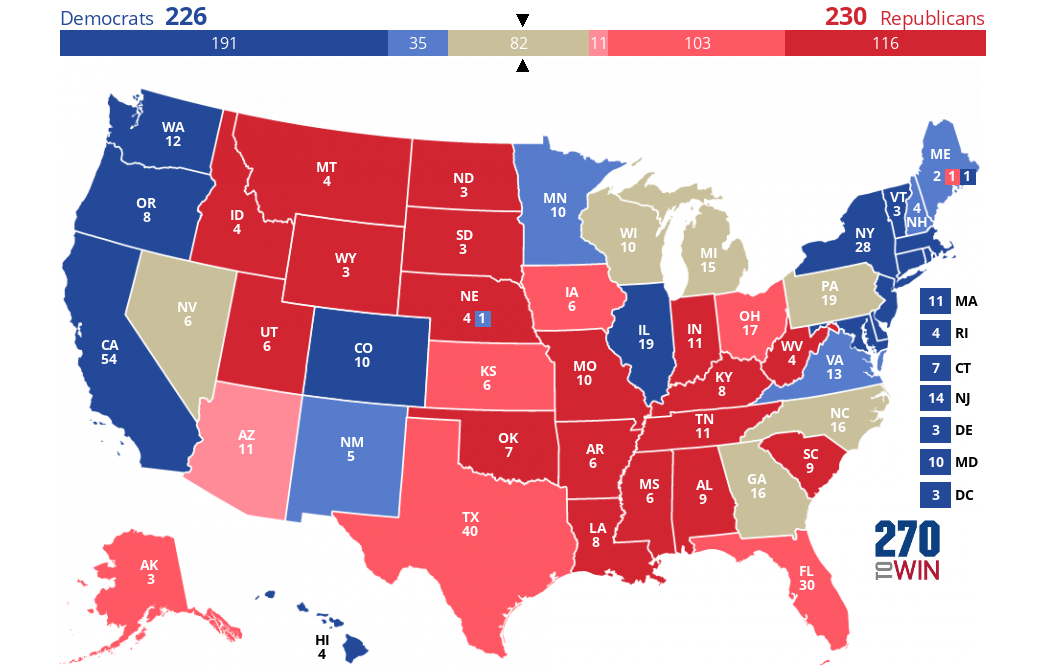Gary Johnson Wins Libertarian Nomination
By 270toWin Staff
May 29, 2016
Libertarians have selected former New Mexico Governor Gary Johnson as their party's 2016 presidential nominee. He won on the 2nd ballot at this weekend's party convention in Orlando.
Johnson has selected former Massachusetts governor William Weld as his running mate. As of this writing, Weld has not been nominated, and there is some possibility his candidacy will be rejected. UPDATE: Weld was nominated as Johnson's running mate.
Johnson was also the party's 2012 nominee, when he received almost 1.3 million votes, about 1% of the general election total. That marked the highest vote count for a Libertarian in any presidential election. Percentage-wise, it was slightly less than the 1.06% total that Ed Clark (VP David Koch) received in 1980. In neither case did the party win any electoral votes.
No 3rd party candidate has won electoral votes since 1968? Will that change this year? Game it out with our interactive 3-way electoral map that includes the Libertarian Party.
 Click the map to create your own at
Click the map to create your own at 
